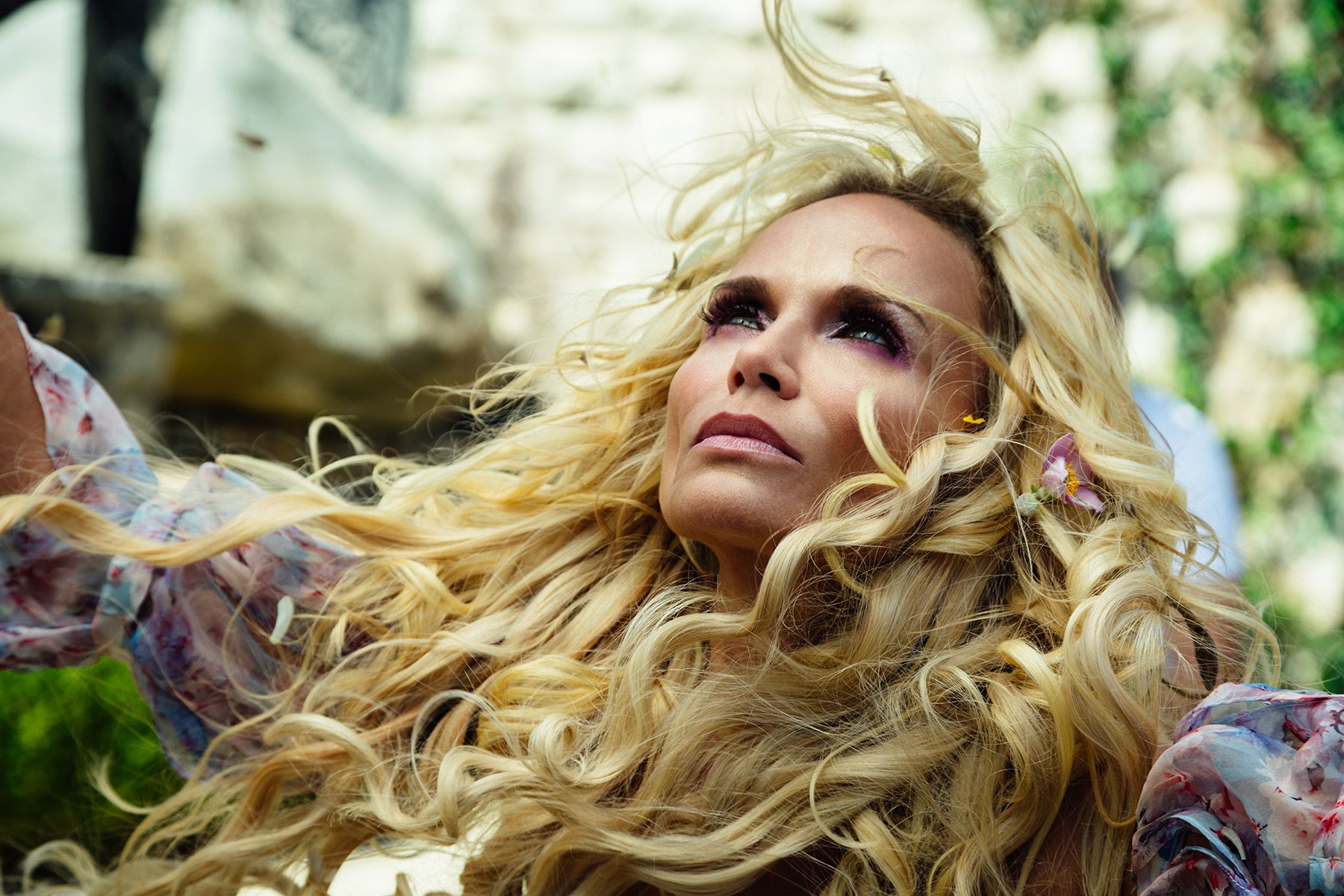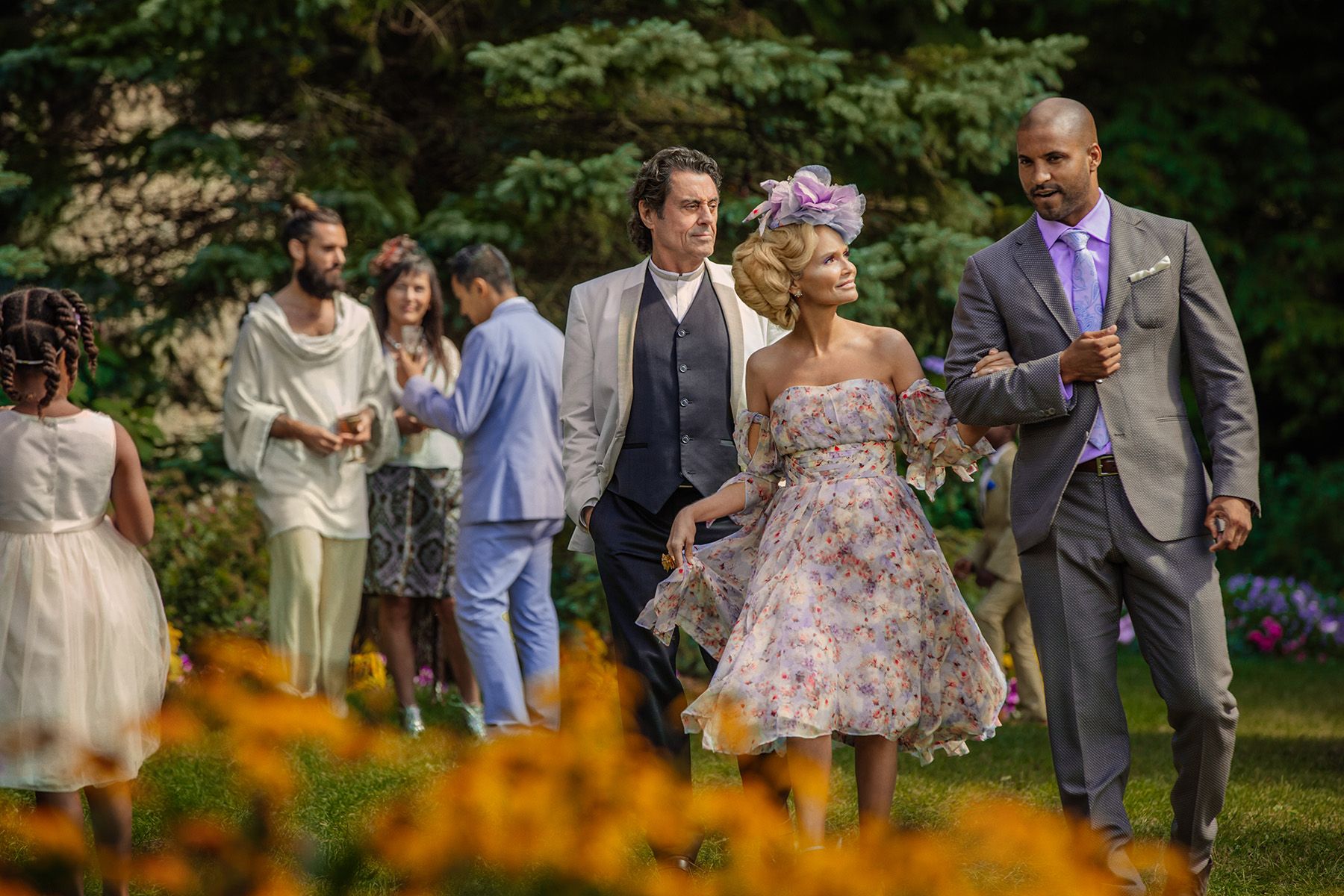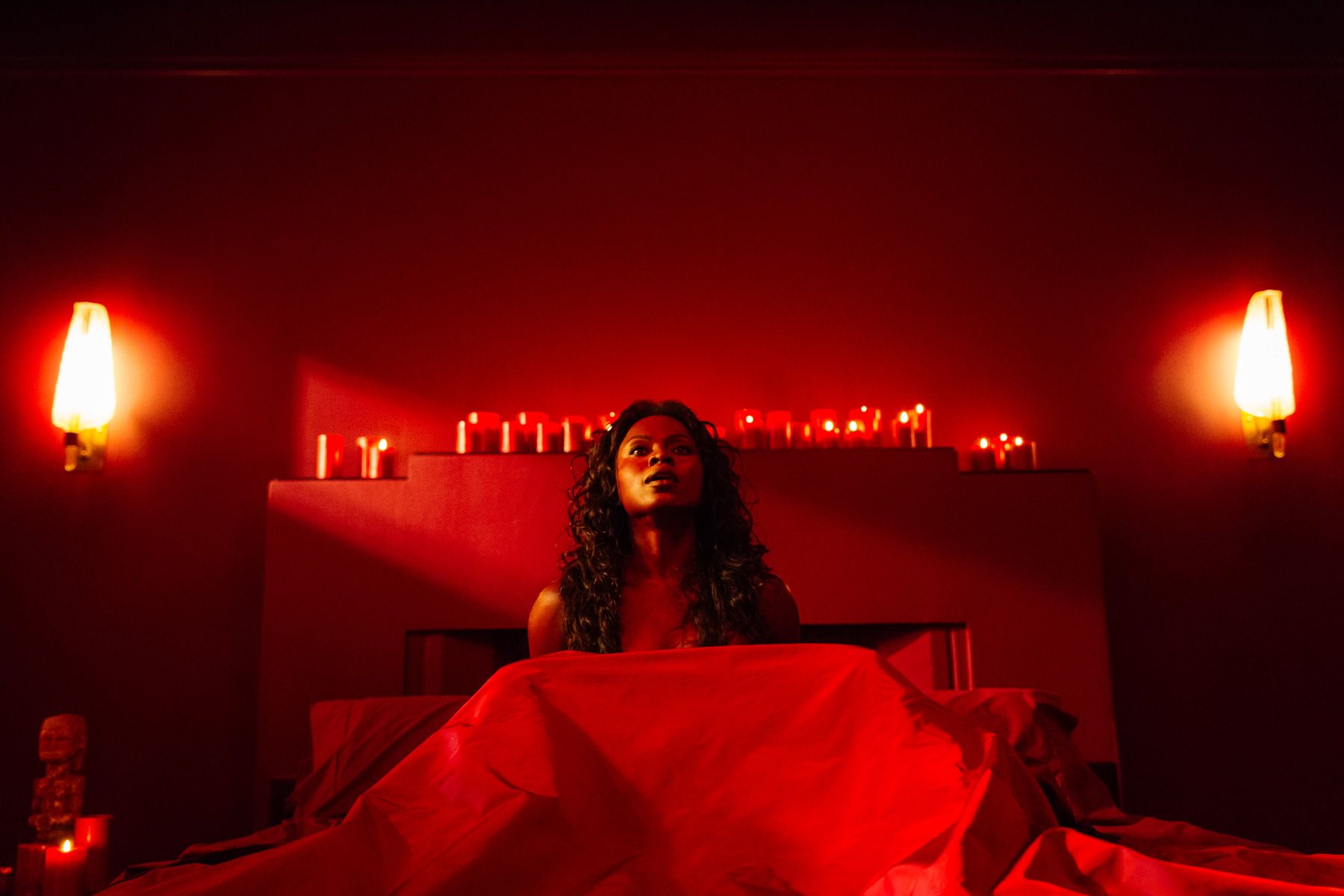Starz' adaptation of Neil Gaiman's American Gods premiered to widespread acclaim in 2017, and the first season established the war between the old gods and the new as something potentially earth shattering. Ending with Mr. Wednesday (Ian McShane) convincing Easter (Kristen Chenoweth) to return to her roots, Season 2 is set to escalate tensions between the two factions even further leaving Shadow (Ricky Whittle) to navigate that and his relationship with his duplicitous, undead wife Laura (Emily Browning).
While Gillian Anderson's popular Media character will not return, Crispin Glover's Mr. World and Bruce Langley's Technical Boy still work in the background to antagonize and eliminate Mr. Wednesday's cadre of wizened, but hungry ancient deities. Pablo Schreiber, Orlando Jones and Yetide Badaki return as Mad Sweeney, Mr. Nancy and Bilquis respectively, and they'll be joined by a rebooted New Media played by Kahyun Kim, Sakina Jaffrey as Mama-Ji a parallel of Indian goddess Kali, Dean Winters, as new god Mr. Town, another ruthless agent hunting Shadow and Mr. Wednesday and finally Devery Jacobs as Sam Black Crow, a religiously skeptical Native American woman.
The other notable new addition to Season 2 was showrunner Jesse Alexander who was curiously sidelined earlier this September and reportedly will have nothing to do with any post-production on the season he once helmed. This left the show currently without a season finale and production stalled for a time while parent production company Freemantle Media regroups.
Today's panel could hopefully shed some light on the current state of the show. It's moderated by Patton Oswalt and will feature appearances by Neil Gaiman, Omid Abtahi (Salim), Mousa Kraish (Jinn), Pablo Schreiber (Mad Sweeney), Emily Browning (Laura Moon), Ricky Whittle (Shadow Moon), Crispin Glover (Mr. World), Orlando Jones (Mr. Nancy), Demore Barnes (Mr Ibis/Thoth), Bruce Langley (Technical Boy) and Yetide Badaki (Bilquis). Neil Gaiman explained that Ian McShane sent his love, but couldn't make the convention due to a medical condition (kidney stones) and Patton Oswalt told the audience McShane had asked him to say c*cks*cker, so the actor's presence was felt.
Neil Gaiman opened up the panel with a few choice tidbits about what to expect from the show's sophomore season:
Season 2 will begin a few hours later and everything is going to get is both better and wrose. the first place we are all headed is the House on the Rock. They closed down the real House on the Rock and let us film here. [For the book readers] We do not get to Lakeside this season... Laura and Mad Sweeney get to go on their own journey which takes them to some pretty hot and exotic places and other than that I think it's fair to say that things get worse for everybody.
Oswalt was curious about how the actors played with some of their characters being not so much people as concepts, and Crispin Glover had this to say about bringing such an idea to life:
It's true there are conceptual aspects. But you've always got something you need so that becomes relateable as a person. It would not be interesting if you did not need something and how you attain it is what makes it interesting.
According to Yetide Badaki working with special effects resulted in a similar experience (which she shared to much ribbing from her castmates as they referenced Bilquis' deadly lovemaking in Season 1)
Y'all don't do that on a Friday afternoon? I think it all goes back to this incredible work that has been created by this master storyteller Neil Gaiman. Going back to that question you asked about what it's like playing gods. Neil's work is so evocative I remember one of the thins that hit me [is that] these goes are distillations of human thought in all their extremities. .Ina s much as they're otherworldly beings, these gods are absolutely human in their needs and in their wants. When it comes down to working with the visual effects, we got to so deeply go into these stories so that even though [you're] sitting there with a trap door bed and getting so much taller it really came down to what was going on between the two people.
She then turned to co-star Ricky Whittle who gave the audience a master class in green screen acting by demonstrating the direction he got when he was shooting the buffalo dream scene:
You have to just drop everything and hand it over to the director and hope he doesn't make you look stupid. Here's me in the buffalo scene: 'you're coming through the cave, there's a tree ahead of you, no -- it's bigger than that. Wide really wide, both sides, you're in awe there's a buffalo, behind the tree it's coming toward you it's bigger than that, that's not its face! It steps toward you, you're scared, but intrigued, it says BELIEVE.' And then he goes cut! And then you're just like, please make that look good.
After that bit of levity, Patton Oswalt turned the mic over to Orlando Jones and asked about the unexpectedly prophetic nature of his monologue on the slave ship in Season 1 given the current state of American culture:
When you read something like that, you're first thought is that there's no way in hell they're going to let me do this.... I was really grateful for the opportunity to do it. At the time we were shooting it was really hot in Toronto and the Toronto division of Black Lives Matter was marching and talking about human rights from the Canadian perspective which [we don't always get to see].
I don't think I realized at all that it would be that prophetic and I think the difficulty is that we've all heard it before, but haven't been able to do it. Neils' work 17 years ago became such a corollary for what's going on now. A lot of the battle [for Mr. Nancy] this year is what human slavery looks like today and that is mass incarceration and human trafficking. It's exciting to be on a show that portrays Muslims and sexuality and exposes even silly stereotypes like the big Leprechaun getting his ass kicked by a female protagonist he's not in a relationship with. These are the tropes that Neil was able to [upend].
Before Oswalt opened up the floor to questions, Bruce Langley elaborated on why Technical Boy's personality seems so fluid and referenced the fact that one part of his personality is an AI that has access to all the information in the world at one time. But he also pointed out that there's a part of the character that's distinctly human and that human is experiencing constant worship by literally every person who uses the internet, so of course his personal relationships suffer.
Neil Gaiman then spoke about how fans of the 1999 novel were disappointed that Technical Boy turned out to be so different in the series and he pointed out that technology in 1999 was very, very different than technology in 2018, so of course the character would have to evolve. He then teased that in Episode 6 of Season 2 would take place in the 1930s and feature Telephone Boy who had just taken over for Telegraph Boy.
Neil Gaiman closed out the panel talking about his journey to writing American Gods and that he'd unintentionally been writing it his whole life given his fascination with mythology -- mythology well beyond Western tradition. When it comes to what he loved most about the series?
I love that people all around the world know who Anansi is, know who Bilquis is and are trying to figure out what the Technical Boy just said -- that for me was the best part.
The panel ended with a Season 2 trailer which you can watch for yourselves below!
American Gods Season 2 premieres on Starz in 2019.



